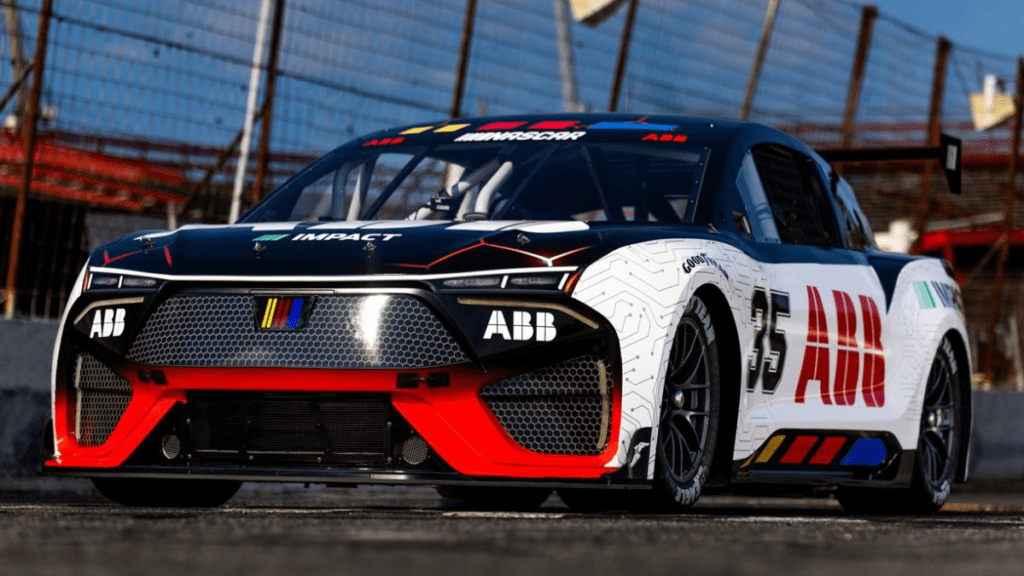NASCAR reveals battery-electric prototype with 1,341 horsepower

In 2022, NASCAR announced a range of sustainability goals. A year later, the NASCAR Impact initiative laid out an interim goal of 100% renewable electricity sourcing at all organization-owned tracks and offices, and an ultimate target of net zero operating emissions by 2035. Here’s one more step that’s actually tangential to the plan, an electric prototype based on the Next Gen chassis. Its bodywork is made from flax-based composites and shaped like a low-slung crossover. The series said it worked on the design with the current manufacturers supplying teams, Chevrolet, Ford, and Toyota, which might explain the CUV form factor.
When NASCAR moved to the Next Gen car, the organizing body shortened the length to 193.4 inches, roof height came down a tad to 50.4 inches, the span growing to 78.6 inches, all touted at the time as making the cars look more coupe-like. The EV proto goes the other way, maintaining the same width and 110-inch wheelbase, shrinking length to 185.5 inches and raising the roof nearly six inches to 56 inches.
Swiss company Bcomp laid up the bodywork from its proprietary PowerRibs skeletal structure supporting its AmpliTex “technical fabric.” Flax-based composites are slightly weightier than the carbon composite bodywork on the Next Gen car, but Bcomp says creating the organic composite releases 85% less carbon emissions than its synthetic counterpart. The EV prototype is said to weigh 4,000 pounds, which would be about 500 pounds more than a gas-powered Cup car with fuel.
ABB, the Swedish energy concern, already Formula E’s primary sponsor and NASCAR’s partner on the clean energy infrastructure projects, helped with the prototype’s powertrain. Built on a 756-volt electrical architecture, a 78-kWh liquid-cooled battery sits on the right side of the floor to create handling dynamics similar to the gas-powered car. The pack charges three motors sourced from Stard, the Austrian firm that supplied the e-motors for Ford’s SuperVans and the SuperTruck that won Pikes Peak this year. There’s a single six-phase e-motor on the front axle, plus two on the rear, each making 333.3 kW of peak power, around 447 horsepower each or 1,341 in total. The 90-degree, 5.9-liter pushrod V8 in a current Cup car can be tuned beyond 900 horsepower, but since the Next Gen introduction in 2022, it’s been limited to 670 hp at all tracks except Daytona and Talladega, where it’s choked down to 510 hp.
The other mechanical bits of the powertrain come from the Cup Series cars, including the rack and pinion steering, double wishbone suspension, and 18-inch wheels. The brakes are also Cup Series units, here bestowed with regenerative capability. NASCAR believes the regen braking makes “the car idea of road courses and short oval tracks.” Test driver David Ragan said he could do about 50 laps of the half-mile Martinsville Speedway on a fully charged battery.
There’s no timeline for a NASCAR EV series or even a demonstration, an exec telling media, “At this point, I would say it’s probably premature for me to speculate on [an EV series]. We’ve worked with our OEM partners to figure out what that would look like, but that’s down the road.”



